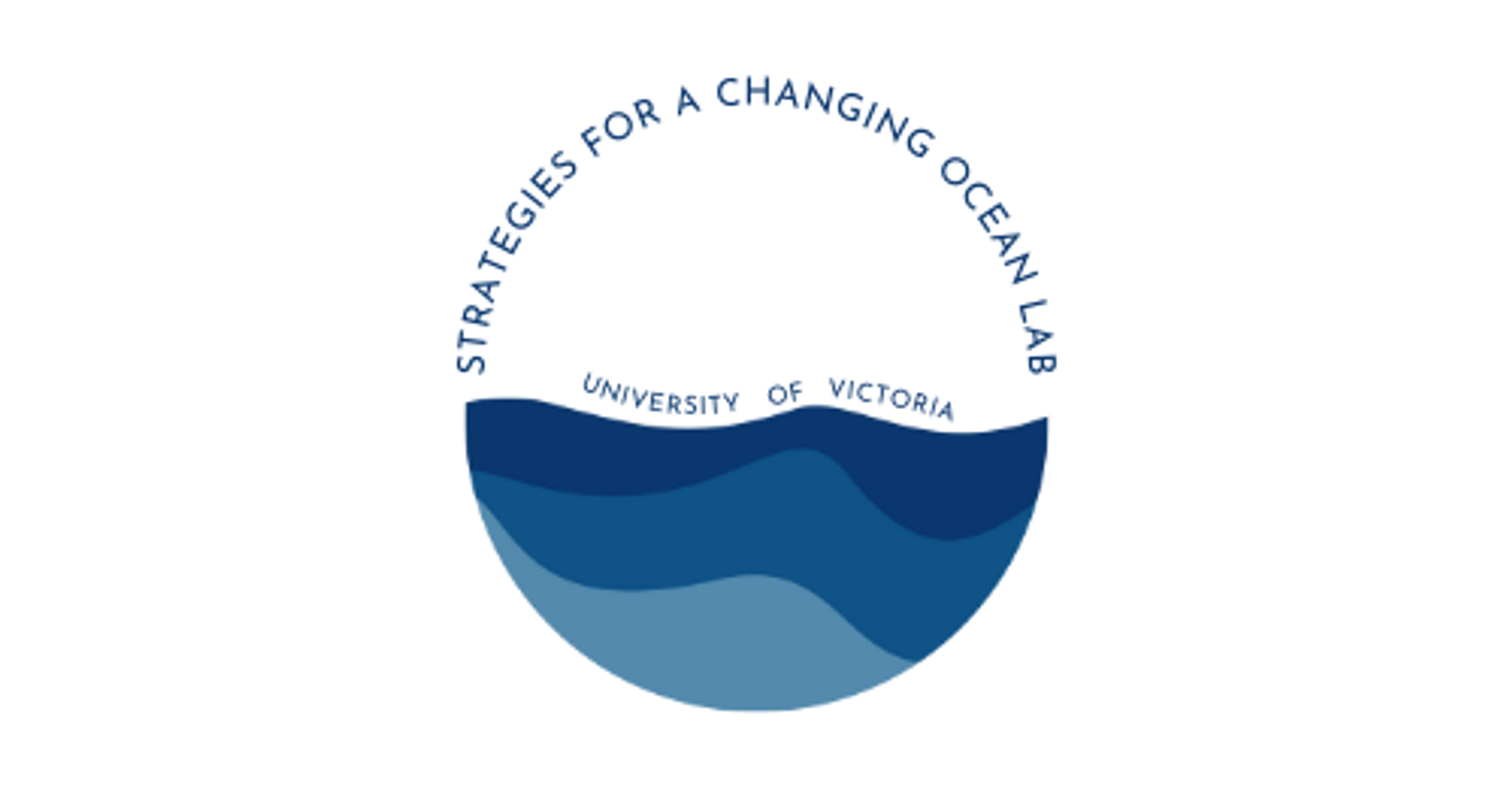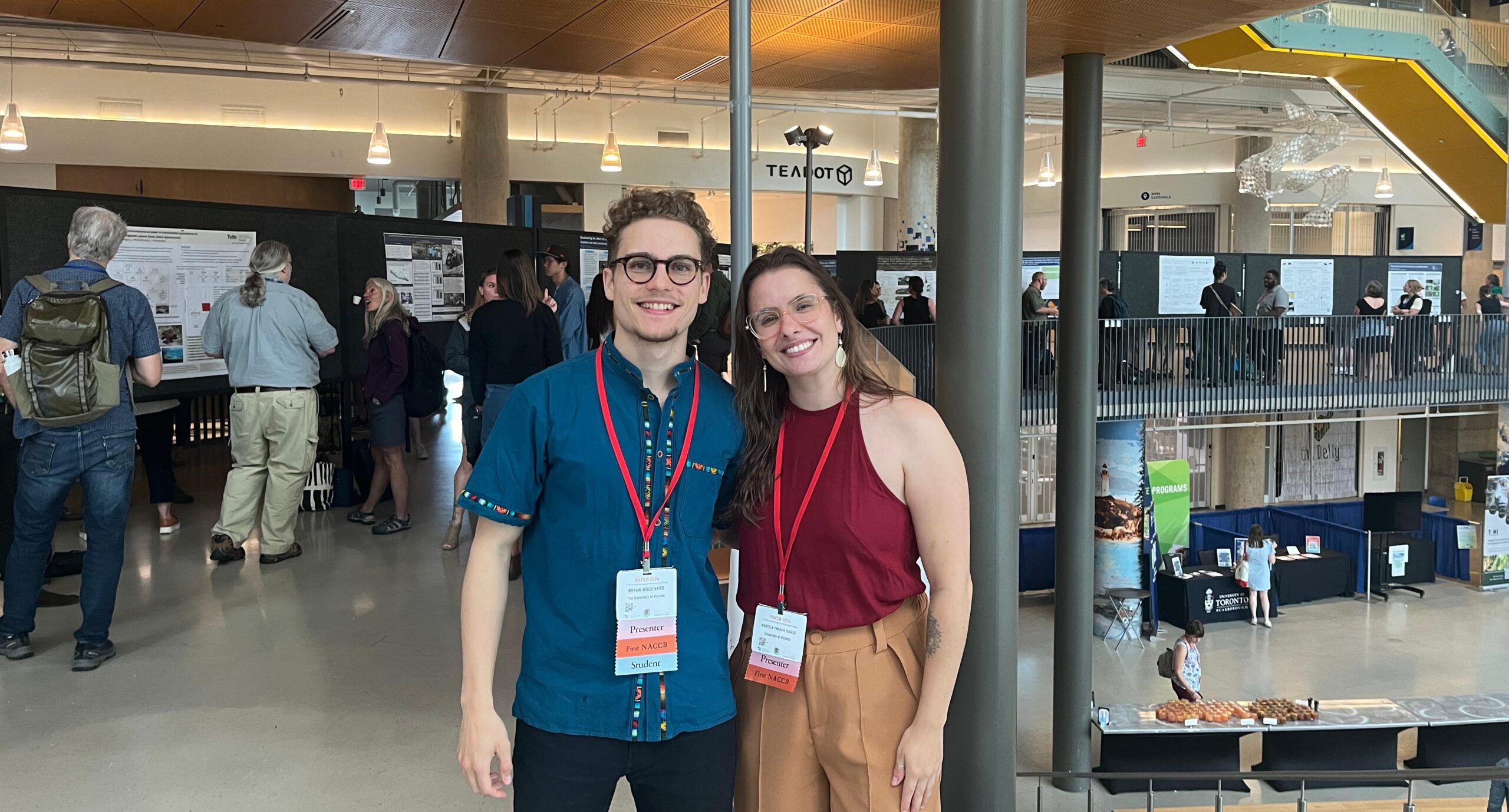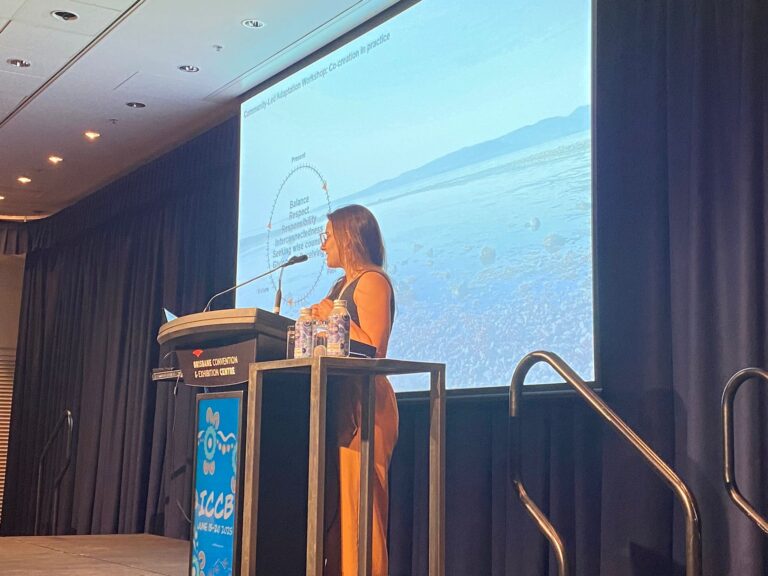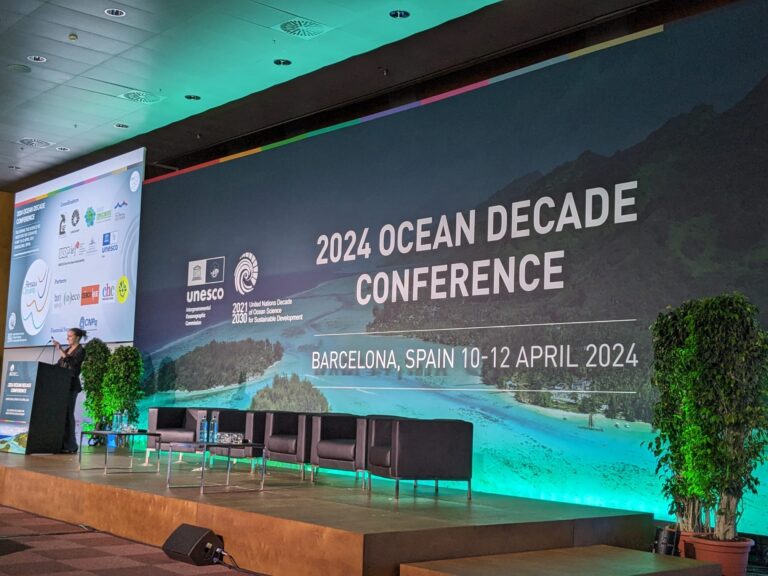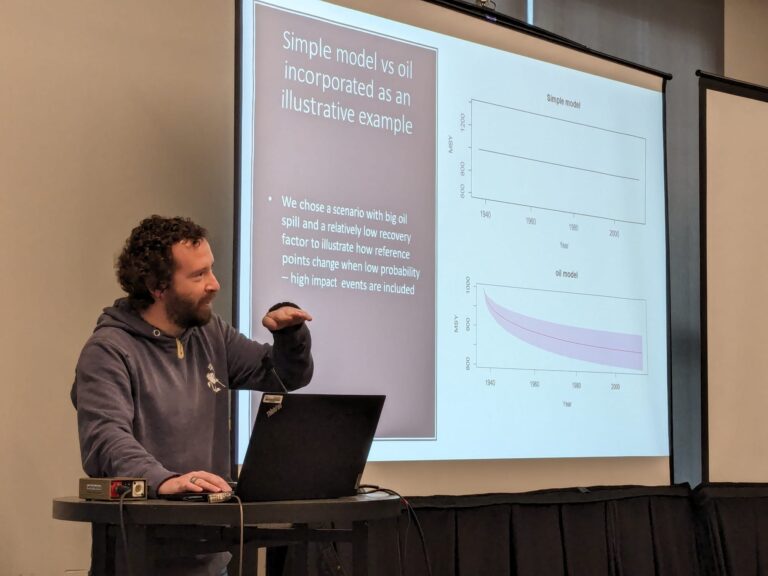North American Congress for Conservation Biology 2024
The master’s students, Bryan and Marcela, attended the NACCB 2024, a congress hosted at the University of British Columbia, in Vancouver. The students presented their research proposal areas and details in a Speed Talk and Poster session, respectively, to the NACCB scholars and participants to create connections, received feedback and introduce themselves for people in the area. Check out for more details!
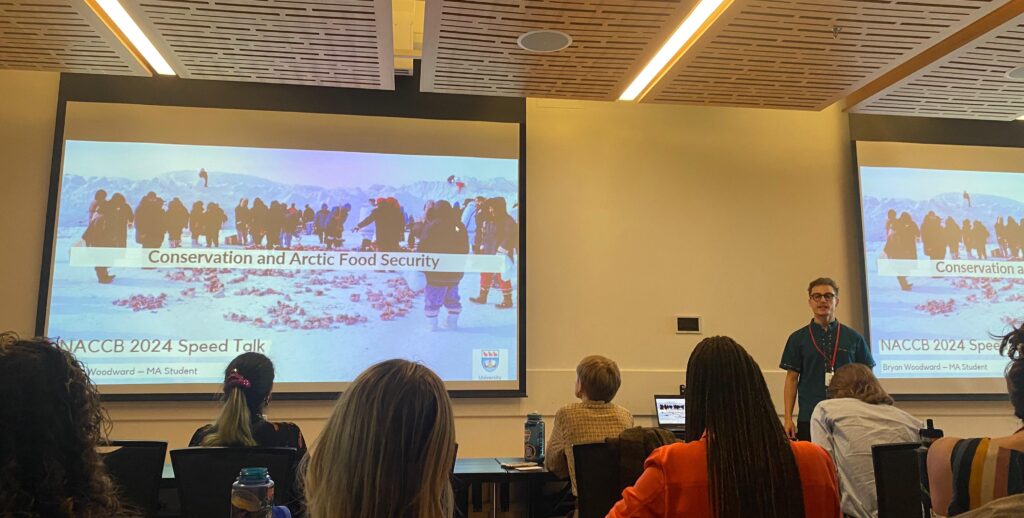
Bryan talked about Conservation and Artic Food security, which is the theme for his master´s thesis.
In his studies, Bryan is working with Arctic communities in Canada, who face numerous threats to their food security. Climate change, food web disturbances and declines in key species affect wild-caught food opportunities. Additionally, the remoteness of the communities and their short-to-nonexistent growing seasons means that market-based and imported foods can be prohibitively expensive. As a result, many people are undernourished and rely on cheap calories which lead to micronutrient and caloric deficiencies.
He talked about how conservation can help preserve species and habitats and ensure food security for years to come. However, he explained, conservation efforts must be conscious of local food harvesting customs and traditions, as many Arctic communities have been interacting with their surrounding biodiversity for millennia in sustainable and healthy ways, and this relationship with the land is an important part of life for many people living in these regions. Thus, concluded, it is imperative that Arctic conservation efforts are community-led, with local priorities and values. in mind.
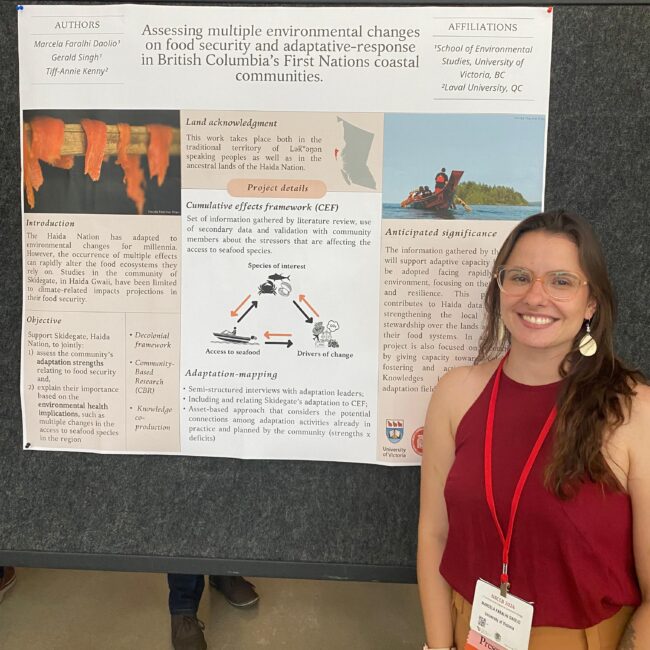
In the same day in the afternoon, Marcela presented her poster on the research proposal she co-developed with the Skidegate Band Council and with her supervisors.
Her research focus on the accessibility realm of food security to First Nations, while also addressing the adaptability the Nation has been developed facing changes in their environment and valuing the community’s adaptations efforts. Through non-extractive methods and following Haida protocols and ethics, their collaborative research will rely on literature review, and Haida documentation. This will be followed semi-structured interviews with adaptation leaders in the community to build a qualitative cumulative effects framework.
She hopes her research will help to improve the adaptation capacity within the Skidegate community and gather an understanding on how these actions can lead to opportunities and can be valued in the future, supporting the planning of adaptation initiatives. It will also update the climate models and serve as a filter for the climate projections made on Haida Gwaii, creating a set of qualitative graphic models of the pathways of effects on food species, to be placed on top of the climate results.
